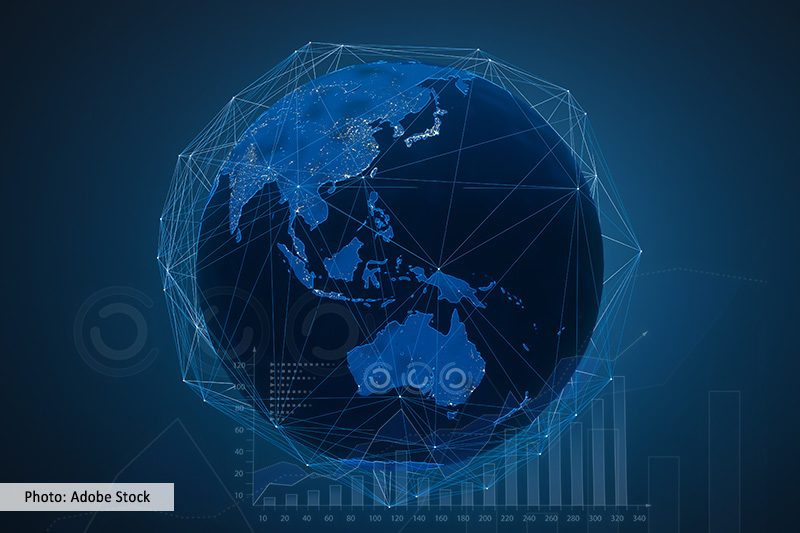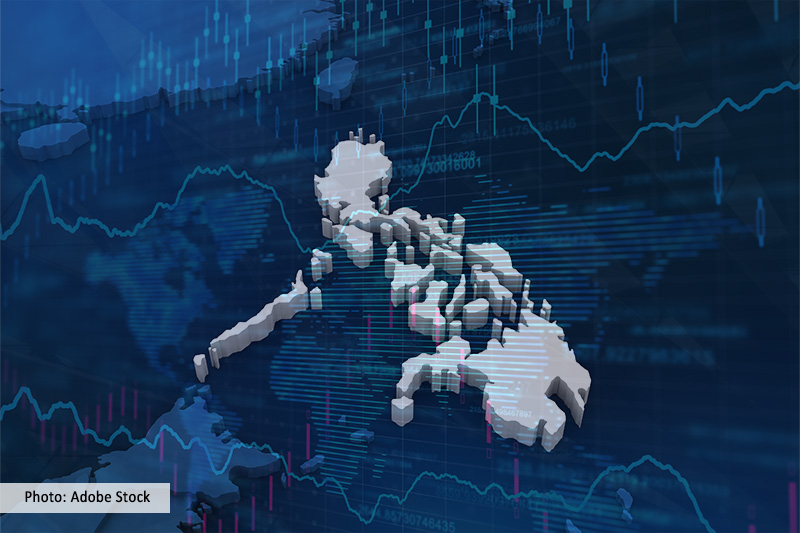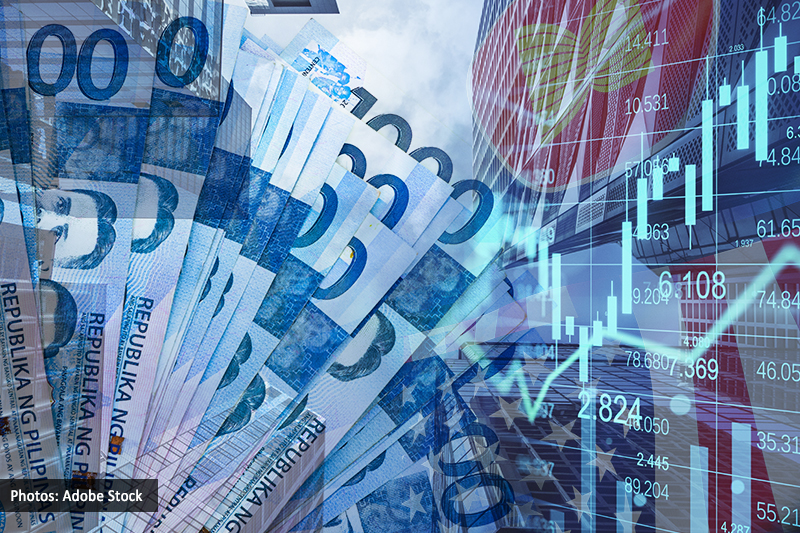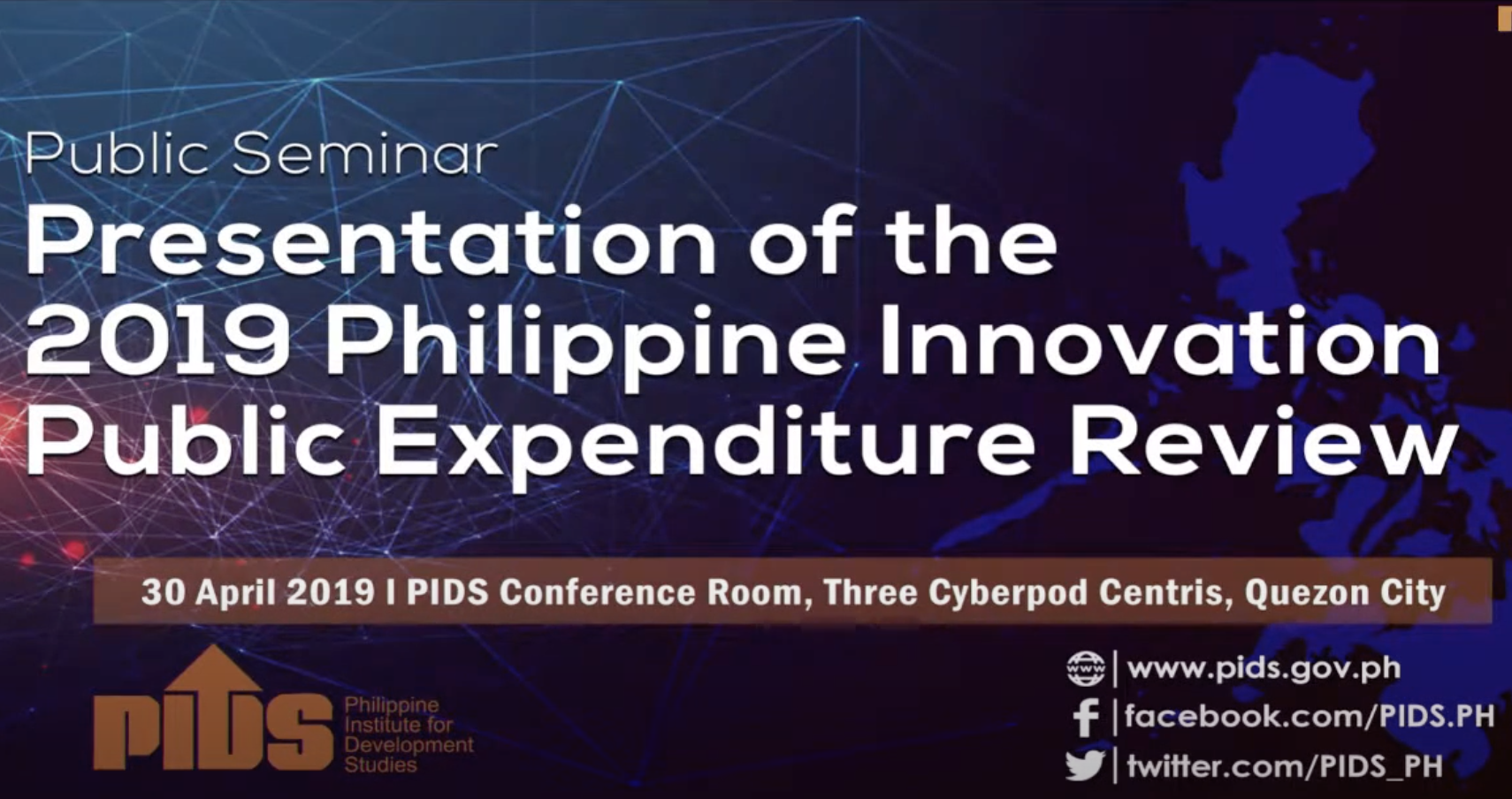The Constitution mandates the President to report to both Houses of Congress the State of the Nation, laying out his legislative agenda, achievements and priorities so that citizens and all stakeholders of the country are given a sense of where we are.
Some of the country’s most respective political analysts together with academe and civil society recently held a round table discussion hosted by the Stratbase ADR Institute and Democracy Watch to think through and exchange insights on President Duterte’s 2nd address.
Dindo Manhit President of the Stratbase ADRi in his opening remarks opened the session and said, “President Duterte’s change-driven mindset has not only rocked the boat, all the signs indicate that the President is keen on keeping that boat rocking. His focus on law and order is as potent as ever, the infrastructure program is as ambitious as ever, and the promise of better government services is as urgent as ever.
Dr. July Teehankee, president of the Philippine Political Science Association, put the Sona within the context of a global wave of populism and presented an analysis based not only on content but also on performance politics, the PRRD style of governance which repudiated the traditional style of politics that was entrenched by the post-Marcos regime.
Dr. Teehankee compared PRRDs own version of performance populism much like former reality show star Donald Trump which started in a Davao television program as a media platform to expose the hypocrisy of the ruling class.
Dr. Alvin Ang, director of the Ateneo Center for Economic Research and Development expressed some frustration for the lack of details pertaining to the country’s economic trajectory and pending comprehensive tax reforms and how this would benefit everybody.
He points out coordination failures within a silo structured government was seen as a delaying factor that could seriously affect the timeline of the big-ticket projects of the “Build Build Build” program.
The administration and governance of the tax reform measures being pushed by the administration is seen to be critical in successfully implementing PRRDs development agenda.
The President’s call for investments in manufacturing reflects his awareness of the need to create quality long-term jobs that would boost a bigger chunk of the population to the middle class.
On the West Philippine Sea, Dr Ang sees that there will come a point when the President will need to decisively address it.
;With the pivot to china, it is very critical that cannot be put on the side for a long time, because people already know that it is ours in the context of economic zones and the naming of the area. With China as the biggest trading partner of the Philippines now and courting it for Foreign Direct Investments, it is a high wire walking act to attract investments of China without giving up the West Phil Sea control or at least postponing it.” Ang said.
Lawyer Tony Abad, CEO of Trade Advisers explained that President Duterte symbolized the tension and feeling of being disempowered and the need for a total socio-political economic reengineering of society. The reaction comes not just from the masses but the middle class, something that is happening globally.
Abad described President Duterte as a crisis manager, a fusion of mayor, tribal chief and strongman with his own philosophy and understanding of the political economy that worked in Davao and should work in the rest of the country. Peace and order is linked to the economy and investments. Winning the battle to end the evils of illegal drugs has become a pre-requisite for economic success.
Dr. Francisco Magno Trustee of Stratbase ADR Institute said that the PRRD is perhaps the product of a dysfunctional system based on inequities of the distribution of power. This has led him to propose federal system that can address the inequities of the current power structure.
Some of the country’s most respective political analysts together with academe and civil society recently held a round table discussion hosted by the Stratbase ADR Institute and Democracy Watch to think through and exchange insights on President Duterte’s 2nd address.
Dindo Manhit President of the Stratbase ADRi in his opening remarks opened the session and said, “President Duterte’s change-driven mindset has not only rocked the boat, all the signs indicate that the President is keen on keeping that boat rocking. His focus on law and order is as potent as ever, the infrastructure program is as ambitious as ever, and the promise of better government services is as urgent as ever.
Dr. July Teehankee, president of the Philippine Political Science Association, put the Sona within the context of a global wave of populism and presented an analysis based not only on content but also on performance politics, the PRRD style of governance which repudiated the traditional style of politics that was entrenched by the post-Marcos regime.
Dr. Teehankee compared PRRDs own version of performance populism much like former reality show star Donald Trump which started in a Davao television program as a media platform to expose the hypocrisy of the ruling class.
Dr. Alvin Ang, director of the Ateneo Center for Economic Research and Development expressed some frustration for the lack of details pertaining to the country’s economic trajectory and pending comprehensive tax reforms and how this would benefit everybody.
He points out coordination failures within a silo structured government was seen as a delaying factor that could seriously affect the timeline of the big-ticket projects of the “Build Build Build” program.
The administration and governance of the tax reform measures being pushed by the administration is seen to be critical in successfully implementing PRRDs development agenda.
The President’s call for investments in manufacturing reflects his awareness of the need to create quality long-term jobs that would boost a bigger chunk of the population to the middle class.
On the West Philippine Sea, Dr Ang sees that there will come a point when the President will need to decisively address it.
;With the pivot to china, it is very critical that cannot be put on the side for a long time, because people already know that it is ours in the context of economic zones and the naming of the area. With China as the biggest trading partner of the Philippines now and courting it for Foreign Direct Investments, it is a high wire walking act to attract investments of China without giving up the West Phil Sea control or at least postponing it.” Ang said.
Lawyer Tony Abad, CEO of Trade Advisers explained that President Duterte symbolized the tension and feeling of being disempowered and the need for a total socio-political economic reengineering of society. The reaction comes not just from the masses but the middle class, something that is happening globally.
Abad described President Duterte as a crisis manager, a fusion of mayor, tribal chief and strongman with his own philosophy and understanding of the political economy that worked in Davao and should work in the rest of the country. Peace and order is linked to the economy and investments. Winning the battle to end the evils of illegal drugs has become a pre-requisite for economic success.
Dr. Francisco Magno Trustee of Stratbase ADR Institute said that the PRRD is perhaps the product of a dysfunctional system based on inequities of the distribution of power. This has led him to propose federal system that can address the inequities of the current power structure.
“We have to involve the regions and communities in a better way. Perhaps parliamentary systems can be more successful in addressing the issues of performance. The President should be some kind of a CEO presiding over a rational organization, making the state a modern organization,” said Magno.
The Friday afternoon was a very lively exchange from the country’s thought leaders. To mention some: Dr. Vic Paqueo -Fellow, Philippine Institute for Development Studies, Gary Teves-Foundation for Economic Freedom, Dat Nguyen-Political Section, US Embassy, Ben Esguerra-Political Section, AUS Embassy, Ben Esguerra-Political Section, AUS Embassy, Romy Neri-Fellow, Foundation for Economic Freedom, Bienvenido “Nonoy” Oplas-President, Minimalist Government Thinkers, Gary Olivar-Foundation for Economic Freedom, Jose Custodio-Military Historian and expert, Dr. Ador Torneo¬-Associate Professor, Political Science, DLSU, Paul Hutchcroft-Professor of Political Science and Social Change, Australian National University, Ms. Thuy Le-Second Secretary Vietnam Embassy, Mr. Hoang Do-Third Secretary Vietnam Embassy.
The Friday afternoon was a very lively exchange from the country’s thought leaders. To mention some: Dr. Vic Paqueo -Fellow, Philippine Institute for Development Studies, Gary Teves-Foundation for Economic Freedom, Dat Nguyen-Political Section, US Embassy, Ben Esguerra-Political Section, AUS Embassy, Ben Esguerra-Political Section, AUS Embassy, Romy Neri-Fellow, Foundation for Economic Freedom, Bienvenido “Nonoy” Oplas-President, Minimalist Government Thinkers, Gary Olivar-Foundation for Economic Freedom, Jose Custodio-Military Historian and expert, Dr. Ador Torneo¬-Associate Professor, Political Science, DLSU, Paul Hutchcroft-Professor of Political Science and Social Change, Australian National University, Ms. Thuy Le-Second Secretary Vietnam Embassy, Mr. Hoang Do-Third Secretary Vietnam Embassy.








